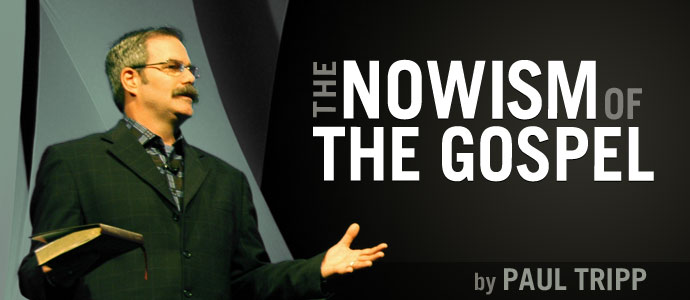(Author: Tyler Kenney)
Yesterday's Ask Pastor John contains his answer. Watch it below, or scroll down for an edited transcript.
The following is an edited transcript of the audio.
How do you go about writing your sermon manuscripts?
My pattern is not to be followed by anybody except those who are wired exactly like I am, which is probably no one. We are all so different. When I teach preaching to the guys, I really stress, "Look how I do it and take that into account. But please don't try to imitate me, because it might not work for you."
This is my approach. If I know my text fairly well and it is familiar to me, I don't work on it until Friday. I pick out the title and text either weeks or days ahead of time because I have to get it to the worship guys by Tuesday. But I don't study it, and I don't write or work on a sermon until Friday morning. I devote all of Friday to sermon preparation.
If I need to I will stay up all night. I've never stayed up all night on Friday, but I've stayed up until 2am when I didn't know what I was going to say and needed more time to study. Or I might get an interruption because of a ministry crisis during the day that is totally unexpected, which causes me to stay up late studying on Friday. The nights are always there as buffers, however, I almost never stay up that late.
So I start on Friday by putting the text up on my computer in English-Greek or English-Hebrew. I read through the original language getting all the help I need with my mouse. I will also have a half sheet of paper in front of me on the desk where I write out the text and make comments as I go. As I write out the text I'm praying, "God show me what's here for my people. Show me what's really here, not something in my head that I force inside the text. Let me see new things that I've never seen before."
And as I write, for whatever reason, I see things. The pen, the computer, the Greek, the Hebrew, the writing it out. I circle things and make little comments in the margin. The little half sheet looks like an absolute jumble when I'm done, and I've generally got a whole slug of questions that can be answered. I've got lines drawn all over the place.
Then I step back and say, "Lord, what am I going to do with all that? I could talk on that for three hours, but I've only got 35 or 45 minutes to do this." In prayer and thought some of those circles come together, and I say, OK, I'm going to make those two, three, or four points. And I take out another sheet of paper and try to figure out how those points should fit together. Backwards? Forwards? Should I start in the middle? All of this may happen by lunch time.
Then I go eat lunch, and when I get back I put up my word document and I just start writing. I take my thoughts that I scribbled out and I compose straight on to the computer, editing as I go. As I write I think and preach out loud, feeling it and praying. That takes four, five, six, seven, or even eight hours to get written. And after it is written I print it out and go to bed, or go to be with Noël or whatever.
Then Saturday after lunch, after Talitha and I go to Leanne Chin or Jimmy John's, I come home and I really go to work on internalizing it with all my little markings. What I take into the pulpit on Sunday is about 10 double-spaced pages that are so marked up they look like chicken scratch, and they function as my outline while I'm talking.
It works for me. Most people who hear I do it that way say, "No way can I start on Friday." Or, "No way can I take a manuscript into the pulpit and not have it be canned." No problem. Wear your own armor, not mine.
|
|







